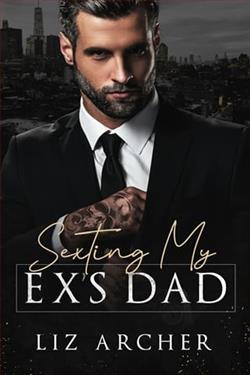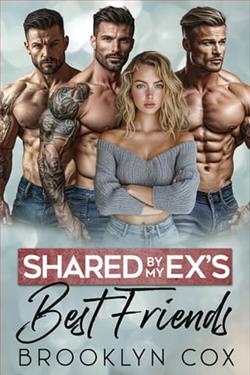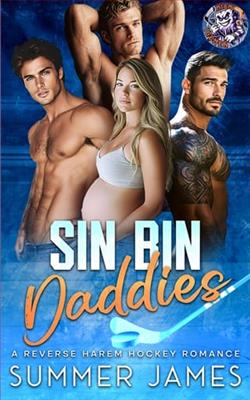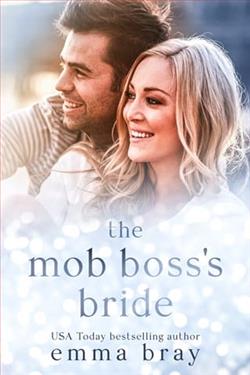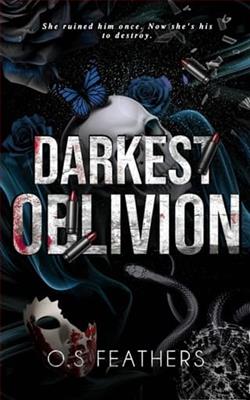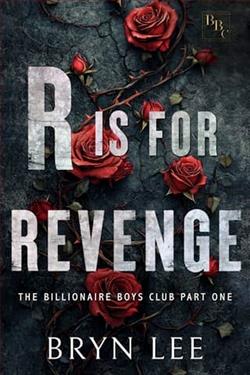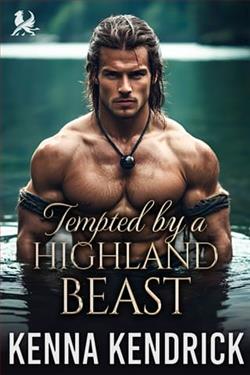Page 22 of Beloved Enemy
When he’d devoured his share of bread and cheese, he took his flask from his belt and tapped one of his men on the shoulder with it. The man took the flask and filled it from a porcelain crock, returning it to Reid, who very kindly offered it to Charlotte first.
Charlotte examined the flask, which was unlike any she had ever seen. While some men had leather-covered pouches as flasks, the only leather on Reid’s flask was the strap holding the cork stopper. The body of the flask was made of polished horn, its smooth, slightly curved surface gleaming in the firelight, and the mouthpiece was reinforced with a dull silver band. It was ornately carved with intricate patterns, symbols she did not recognize, but which spoke of careful craftsmanship.
“Is this the horn of an actual animal?” She asked before she drank. “Like a cow?”
Reid turned his head on his shoulder, his regard quizzical. “Aye, cattle.”
Grimacing slightly, Charlotte resisted the urge to ask how often this thing was washed, or if it had ever been sanitized prior to the first drop of liquid being added to it.
She took a tentative sip, not surprised to discover she was drinking ale—she had read plenty of medieval romances. It was indeed ale, and warm, the taste unfamiliar. It was earthy and slightly bitter, with a robust malt flavor, smoother and thinner than she’d expected, but not entirely unpleasant. However, it wasn’t necessarily satisfying, this being her first drink in more than a day. She tried to smile at Reid as she handed the flask back to him, but suspected it looked more like another grimace. She rolled her tongue around the roof of her mouth, trying to dissolve the yeasty aftertaste.Ew.
Thinking to drown out that taste with more bread, she lifted the last piece to her mouth, but paused, catching sight of tiny little dark spots in the pale bread. Though the light was not good enough to know for sure, Charlotte made another face, picking out what she thought must be bugs in the bread.
She picked and flicked several bits and caught Reid watching her.
Her shoulders slumped. “I’m not cut out for this...this medieval life.” She turned and put the bread close to his face. “Are those black things bugs?”
Another scowl appeared, crinkling his brow. “'Tis bits of grain.”
Straightening, her queasiness instantly vanishing, she smiled. “Oh, good.” And she polished off the remainder of the bread. She finished what remained of the cheese as well and brushed her hands off against each other before burrowing back inside the blanket. With her hunger temporarily satisfied and having no desire to sample the ale again, she sat, almost content to watch the men gathered and listen to the strange but pleasant sounds of their language.
“I don’t know any of their names,” she whispered to Reid, leaning a bit against his solid arm.
He sighed, giving her the impression that he’d been happy to sit silently, much longer than she, but did oblige, pointing to the dark-haired man who’d been the most unkind and suspicious of Charlotte when first they met.
“That’s Tavish, my cousin and second-in-command,” Reid said, his deep voice low.
Tavish was as tall as Reid, and sported a well-trimmed beard and wore his long hair tied back at the nape of his neck. An apparently old, deep scar ran from his cheek to his jawline, where no facial hair grew.
“Eoin, ye ken, is the chief scout,” Reid said next, pointing to the only one whose name she did know, the sandy haired guy who maybe was twenty or so, of medium height and a lean but muscular build. She would have said there was a boyish charm about him, an easy nature, but for the hardened look in his eyes.
He next indicated the short and stocky man, who had a barrel chest and thick arms. “Seumas there is our engineer, responsible for fortifications and siege engines as we need them, and at Kingswood, he serves as the water steward, overseeing the irrigation for the runrigs.”
Seumas was the man who’d pronounced her name as Char-lot. He was pale-skinned with dark eyes and a scruffy beard peppered with gray; though he looked rather surly, he hadn’t been unkind to Charlotte.
“That’d be Fergus there,” Reid said, pointing to a man standing, who was stout and powerfully built with a ruddy complexion and thick red beard. His hair was wild and curly, presently kept under a helmet. “And nae, he dinna ever take off his helm,” Reid enlightened her.
She smiled, since she had noticed he was one of the few Nicholsons who wore a helmet.
“Who’s that guy? The bald one?” She asked. She’d noticed him several times, as he was taller than Reid with thickshoulders and a mean face, with a prominent jawline and deep-set brown eyes. Honestly, she’d thought earlier that he looked like a serial killer.
“Ruairidh MacEwan,” Reid supplied. “Manages the daily training of the army.”
“Oh, like a drill sergeant,” she surmised. “That seems a perfect occupation for him. He looks pretty scary.”
Reid chuckled briefly, the sound barely registering before he made it stop. “Aye, he prefers his bare hands to weapons on most occasions—I’ve seen him crush a man’s skull with naught but his hands—but then he coddles his three daughters, ye’d nae recognize him in their company.”
“Oh, how sweet,” Charlotte cooed. “Well, his affection for his daughters is sweet, not the skull-crushing part.” She transferred her attention to another Nicholson man. “And who’s that one, the young guy with the wiry frame and scar above his eyebrow? He seems to smile a lot.”
“Lachlan Giffard, another cousin,” Reid answered. “A soldier, aye, but he also serves as our barber surgeon.”
“Barber surgeon? You say that as if it’s two occupations joined as one.”
“So it is. Both professions require a steady hand and a keen eye for detail. Lach is proficient at tending daily grooming and minor injuries. His surgeon’s work is more rigorous, but both require finesse handling tools.”
“Interesting,” she remarked. “I had no idea.” And then it dawned on her: “Oh, surgeon. You mean like a field surgeon during war.” At Reid’s nod, she pictured a smiling Lachlan standing inside a tall tent, hacking off limbs after an intense battle, tossing hands and feet into a bloody bucket. She frowned at herself, having no idea where such an image had come from. “Where did he learn to tend wounds?”
“Lach fostered in his youth in England, with the baron Bothal—that was before the war,” Reid explained. “Great education there; he studied with monks and scholars, as the baron was well-connected.”








